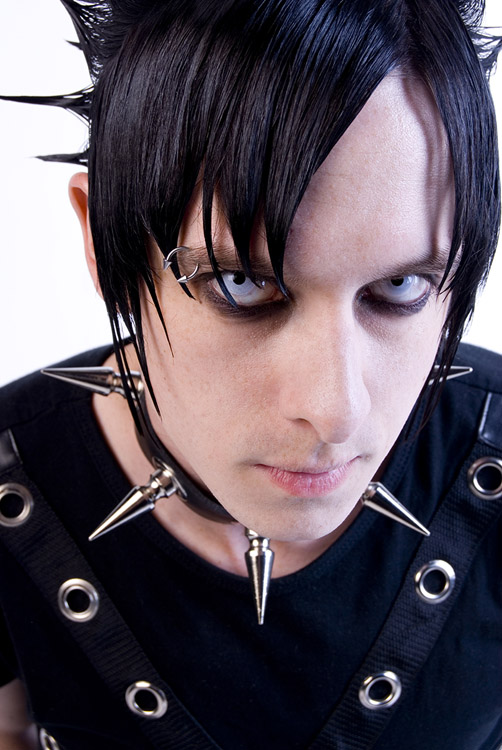In the old days, according to my dad, there used to be block parties. Neighbors knew neighbors. The helped one another and celebrated together. When I was little, before video tapes said it was against the law, we used to put on movies and invite the neighborhood kids to watch. But what modern people tend to see in being neighborly tends to come out as an episode from Chuck.
Or they think of the people in Edward Scissorhands.
But that is the commercial view of being neighborly. A caricature.
When I was a teenager and Mr. Roger's Neighborhood was still on TV, kids used to sarcastically joke, "Would you be my neighbor?" But I think all of those kids had at one point loved that TV show and wished there was more friendliness in our neighborhoods.
What does it really mean to be neighborly? Honestly?
I think the best example is Biblical, in this case. It has been said that the first great commandment is to love God, and the second to love your neighbor. Then someone asked Jesus, "Who is my neighbor?"
And he told a story, a parable, explaining clearly what a neighbor was. It is called the Parable of the Good Samaritan.
What a lot of people don't know about the parable was that a Samaritan was considered hateful to the Jews of Jesus's day. It was the result of longstanding animosity. So the parable isn't just about some nice guy helping out another guy. It was about someone reaching across cultural barriers that were so ingrained, helping someone who would be considered an enemy.
It reminds me of this book I read recently about a couple who had survived WWII. Surviving Hitler One was a Jewish born woman who ended up surviving Auschwitz and Bergen-Belsen, and the other was a Norwegian/Swedish man who was part of the Waffen-SS and somehow got out of harsh punishment. They met in Sweden and got married. Two lonely souls on opposite sides able to reconcile and forgive.
One story in the book touched me the most. There was this one time where the lady, Agnes, was stuck in Bremen as part of a women's work camp. She noticed her guards' suffering. Especially one woman. One day, she walked up to and spoke with that lady guard - who had just resolved a moment ago to take her own life because she had been suckered into joining the Nazi army and it had basically ruined her life. The guards were not allowed to speak with their captives and the captives were not allowed to speak to the guards, but Agnes did anyway. And in that brief moment of the war, she comforted her enemy. And it was not the only time, either.
I think one of my favorite scriptures is "But I say to you, Love your enemies, bless them that curse you, do good to them that hate you, and pray for them which spitefully use you, and persecute you;"...not so much because I have mastered it (because I have not), but that is it what I aspire to.
Being neighborly is seeing that everyone needs help and everyone needs love. It is seeing a need and taking care of it in the best of our capacities. As with the story of the Jewish woman and the SS solider, she met him when simply taking him soup when he looked ill. He had worked at the factory she worked. It was nothing expensive. Nothing fancy. And no fanfare.
The opposite of neighborly is acting as an enemy.
Or to put it plainly, enjoying the pain of others.
I think this is why I don't like war movies. Besides all the shouting, blood, and violence, I really don't like how quickly people take sides and begin to willfully hate the 'bad guys'. Hollywood has created this good-guy/bad-guy dichotomy... which on the whole is fictitious.
“War is a game in
which the best men are sometimes worsted.”—Mustapha Kemal (Turkish victor)—
I remember when a friend/co-worker of mine showed the movie "Windtalkers" to a group of Chinese students...and they cheered for every Japanese soldier that died. And I thought, how awful. So much hate...
When I was young I had made a decision that has shaped my life and the choices in it. I decided to eliminate the word enemy from my vocabulary. I would never used that word to describe another person again. I was born in, and grew up during the Cold War. But when watching our president and Gorbachav try to make peace, I thought what a good thing it was. I had later gone to Russia as a missionary, hoping to share the things that I loved and made my life happy. I met all types there. Friendly people and hateful people. And one time we held a conference in a secondary school where on the walls they had a mural of how to deal with a nuclear war - very 1950's style. And I thought, "They were more scared of us than we were of them."
I don't know if that is true or not, but such fear was something awful to me. I later ended up teaching English in China. And as I listen to people talk about other countries in such hate-filled terms, I am made sad.
So...what can men (And women) do against so much reckless hate?
Being neighborly is a godly trait. Why? Even God gives people who profane his name a second chance. Let's used the story of Saul of Tarsus as an example. He helped people persecute the followers of Jesus Christ. And Christ himself visited him and gave him his second chance. He helped Saul become Paul - one of the greatest missionaries of all Christendom, by turning an 'enemy' into a friend.
N is for Neighborly.











